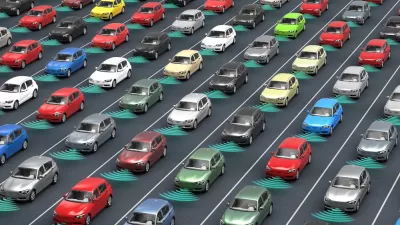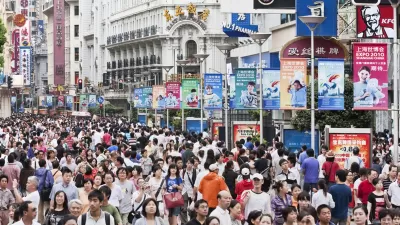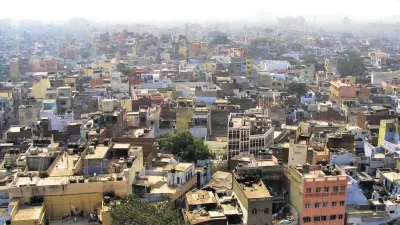Rapid urbanization in India will create unplanned cities with poor quality of life unless steps are taken to integrate urban design and planning with governance structures, and primitive planning methods are revamped with the latest technology.
The number of cities as well as the number of people living in India's cities is rising steadily, and it is estimated that around 700 million people will be living in the country's urban centres by 2050. It is inevitable that many villages and small towns will expand to become large cities but is that enough? What is going to guide this process?
"Unfortunately, there are no proper plans in place for these new settlements as well as for the existing cities that are witnessing massive urban sprawls," laments Ranjit Sabikhi, a well known architect and urbanist from India.
He stresses the importance of transforming the outdated master-planning process which is still carried in 10-20 year intervals. City plans must be more flexible so that they can be modified with the fast changing times and needs, argues Sabikhi. The implementation of the plans needs to be monitored more closely making use of the latest technology and skills.
Sabikhi insists that as important projection and planning is for these cities, so is urban design which defines the quality of urban space and brings together multiple professions related to making of cities. It is essential that urban planning and urban design become integrated with the governance structure at state as well as city level. Furthermore, the participation of local communities in planning decisions for their own neighbourhoods and cities must be promoted to enhance a sense of ownership and improve the quality of life. One has to agree with the author that unless these points are taken care of, the future of India's cities is not only bleak but extremely haphazard and chaotic
Thanks to Kanak Tiwari
FULL STORY: Designing the future

Alabama: Trump Terminates Settlements for Black Communities Harmed By Raw Sewage
Trump deemed the landmark civil rights agreement “illegal DEI and environmental justice policy.”

Study: Maui’s Plan to Convert Vacation Rentals to Long-Term Housing Could Cause Nearly $1 Billion Economic Loss
The plan would reduce visitor accommodation by 25% resulting in 1,900 jobs lost.

Planetizen Federal Action Tracker
A weekly monitor of how Trump’s orders and actions are impacting planners and planning in America.

Waymo Gets Permission to Map SF’s Market Street
If allowed to operate on the traffic-restricted street, Waymo’s autonomous taxis would have a leg up over ride-hailing competitors — and counter the city’s efforts to grow bike and pedestrian on the thoroughfare.

Parklet Symposium Highlights the Success of Shared Spaces
Parklets got a boost during the Covid-19 pandemic, when the concept was translated to outdoor dining programs that offered restaurants a lifeline during the shutdown.

Federal Homelessness Agency Places Entire Staff on Leave
The U.S. Interagency Council on Homelessness is the only federal agency dedicated to preventing and ending homelessness.
Urban Design for Planners 1: Software Tools
This six-course series explores essential urban design concepts using open source software and equips planners with the tools they need to participate fully in the urban design process.
Planning for Universal Design
Learn the tools for implementing Universal Design in planning regulations.
Caltrans
Smith Gee Studio
Institute for Housing and Urban Development Studies (IHS)
City of Grandview
Harvard GSD Executive Education
Toledo-Lucas County Plan Commissions
Salt Lake City
NYU Wagner Graduate School of Public Service





























